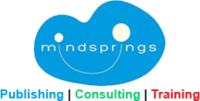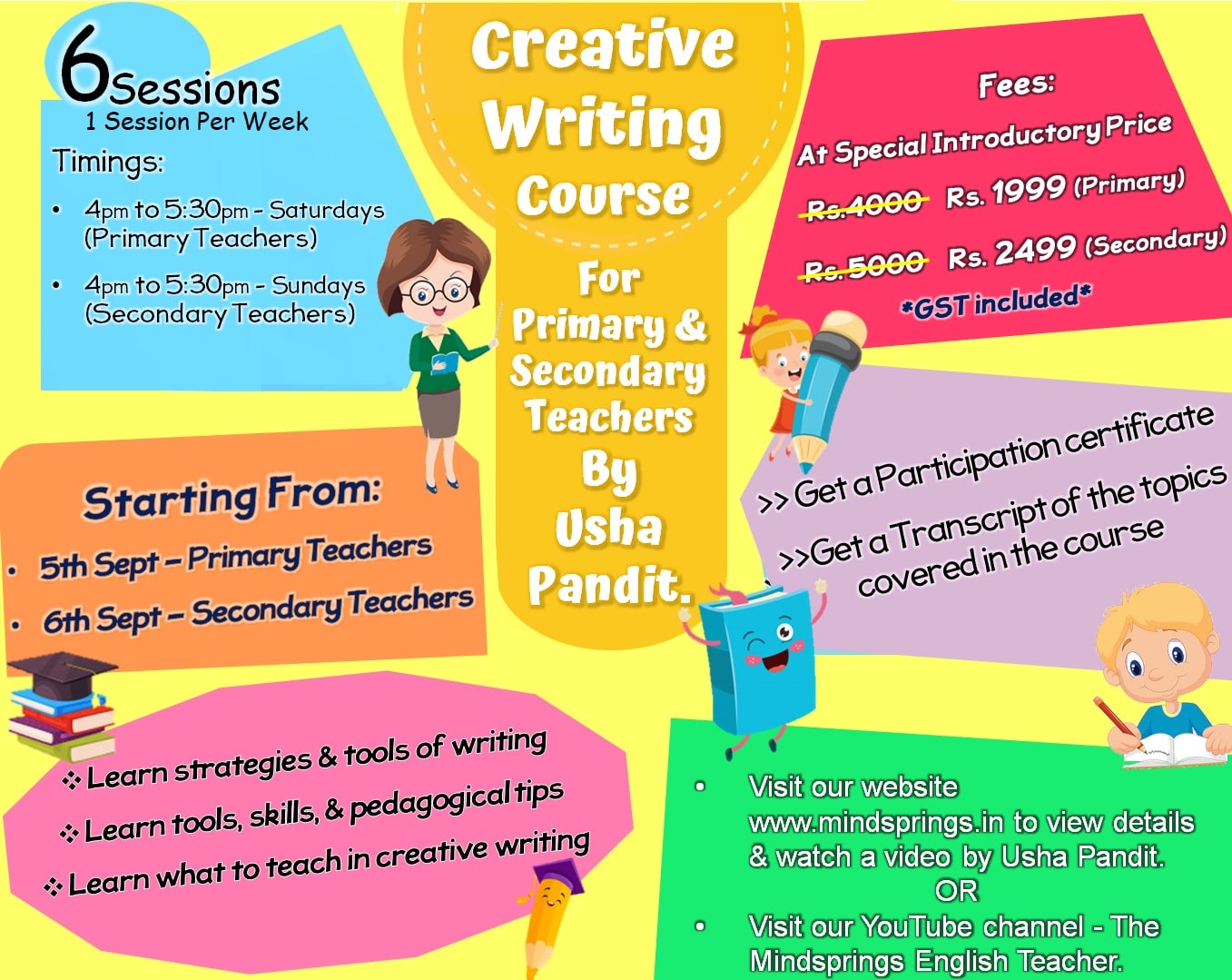Few Key Takeaways from the ‘Online Creative Writing Courses for Teachers’
Here are a few key takeaways from the two Online Courses I conducted for over 300 Primary and Secondary English teachers on “Teaching Creative Writing” in the last 3 months.
1. We have some brilliant writers amongst our English teachers who can compete with the best in the world.
2. Writing well does not automatically lead to speaking well or teaching well. They require different skill sets. The teaching methodology even in the best schools has shown paucity. Hence training is critical. If children learn with excellent teaching strategies, they carry the learning with them into the future.
3. When teachers work on assignments during the Online Course, it becomes clear that they are significantly undertrained to teach writing. They are stretched beyond their comfort zones and to deal with this is courageous. When we work hard at something, the efforts are not wasted and in the end children benefit.
4. The areas where improvements are required are: understanding genres, analysing multi-layered questions, making rubrics. Teachers must break away from the traditional “test taking” mindset and shift to “learning mindset”.
5. Participants are quick to see the benefits of the big picture when they experience it. The assignments make them more empathetic to children’s needs. They realise how much there is to learn and practice and they acknowledge it. They realise how our professional courses fall short in providing them the necessary skills.
6. Traditional Workshops are a failed model of training, leading to waste of money, time and effort. There are no assignments, and no rigorous engagement required for effective learning. It’s a feel good model that is tick boxed by schools as professional development.
7. Instead of individual feedback on assignments, collective feedback allows collaboration in sharing content produced by other participants. They generate immense classroom resources and exemplify pedagogical strategies for success. It paves the way for a new mode of collaborative learning and corrections in the classroom that is modelled by the course. This will create a paradigm shift where the teachers are released from the punishing wasteful yoke of traditional corrections and are free to teach instead. No one believes this till they experience it.
8. Teachers have benefitted from the question papers they encountered and have seen how students can be invited to recount, comment, use materials for application, make questions, research to share content, and generate own content.
9. Teachers experience the inter-relationships between the various arms of English like comprehension, grammar, poetry and reading to impact writing. They practice integration of subjects to economise on time and effort through self-generated questions. Integration is now a definite possibility in the 21st century skill called collaboration.
10. Teachers must use volume, frequency and context to teach. They witness the benefits of layering as they journey through the course. It is more than writing that they learn. The course is also about pedagogy, strategy, planning, terminology, corrections and philosophy of learning through practical work. It is both a personal and professional journey.
We owe this learning journey to our children.


